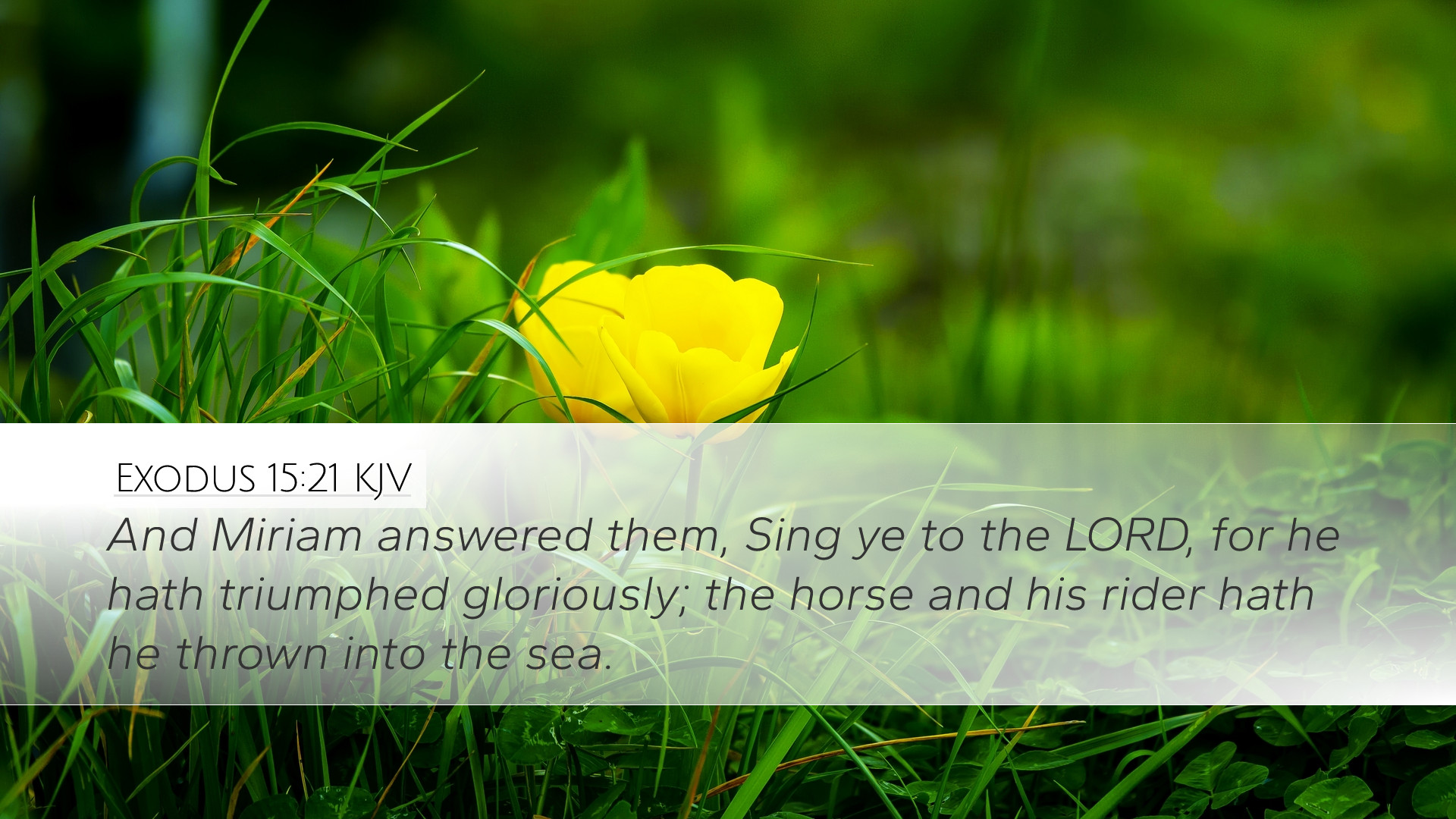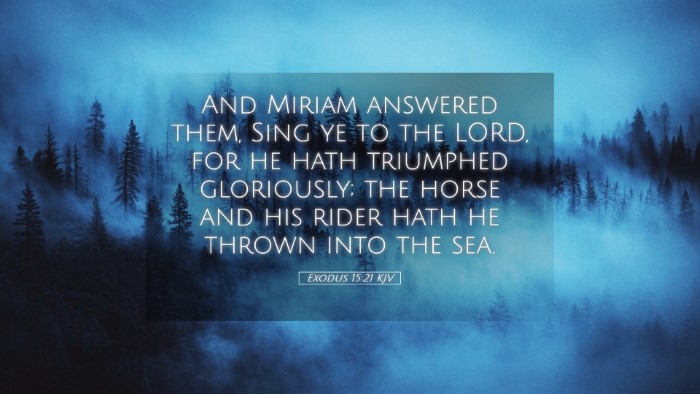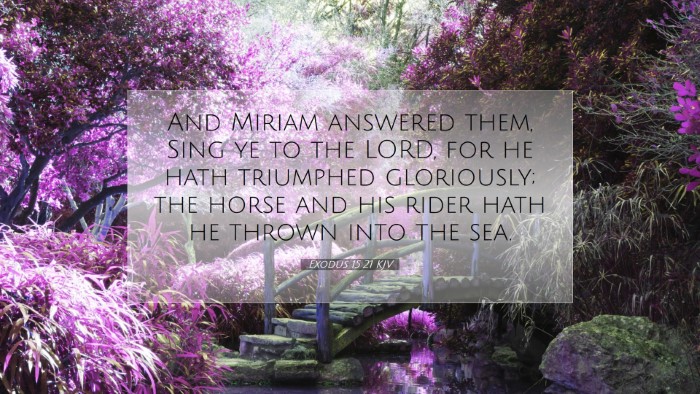Exodus 15:21 Commentary
Bible Verse: "And Miriam answered them, Sing ye to the Lord, for he hath triumphed gloriously; the horse and his rider hath he thrown into the sea." (Exodus 15:21)
Contextual Background
This verse comes after the miraculous crossing of the Red Sea, a pivotal moment in the history of Israel where God delivered His people from the pursuing Egyptian army. Miriam, the sister of Moses and Aaron, takes on a leading role in proclaiming the victory of the Lord, encouraging the women of Israel to express their joy through song and dance.
Miriam's Leadership
Matthew Henry emphasizes the significance of Miriam's role as a prophetess. He notes that her song serves as a powerful reminder of the collective praise due to God for His deliverance. As she leads the women in worship, it symbolizes the communal response of gratitude and celebration, revealing the importance of vocalizing God's deeds.
Albert Barnes contributes further by exploring Miriam’s title as a "prophetess." He reminds us that this acknowledgment signifies her being used by God to lead Israel in worship and spiritual life. Her leadership encourages both women and men to bear witness to God’s mighty acts.
The Nature of the Song
The song itself contrasts the might of Pharaoh’s army, represented by the horse and rider, with God's unmatched power to save His people. Adam Clarke notes that Miriam’s song is structured to highlight the glory of God and the humiliation of the enemies. This way of praising God not only reflects the joy of salvation but also invites future generations to remember God’s faithfulness and deliverance.
The use of communal song reinforces the idea that worship is an integral part of the community’s life, inviting all to join in rejoicing for God's powerful acts.
Theological Implications
- Divine Triumph: The phrase "he hath triumphed gloriously" reflects a powerful assertion of God's sovereignty and victory over evil. This concept is reiterated across the biblical narrative, reminding believers of God's ultimate power.
- The Nature of Celebration: The response of Miriam is a model for worship. Her call to sing signifies the joy of salvation as an expression of gratitude and reverence, showing that worship is a response to God's actions in our lives.
- Community and Worship: Miriam’s leadership in song highlights the collective aspect of worship. It illustrates how worship should engage the community, fostering unity and shared experience in glorifying God.
Application for Today
The events described in Exodus 15:21 speak profoundly to modern congregations. The call to sing praises invites contemporary Christians to remember and recount God's deliverance in their lives. Every act of grace and mercy should elicit a response filled with joy.
Matthew Henry points out that believers must never lose the spirit of gratitude and worship, as doing so can lead to spiritual complacency. He encourages Christians to find ways to celebrate God's triumphs in both personal and communal settings.
Albert Barnes reminds Christian leaders to encourage their congregations to foster a spirit of worship that remembers past salvific acts, as these memories nourish faith and hope.
Conclusion
Exodus 15:21, as interpreted through the lenses of Matthew Henry, Albert Barnes, and Adam Clarke, represents a profound moment of celebration that is both personal and communal. Miriam's leadership in singing exemplifies how the community is called to respond to God’s mighty acts with joy and gratitude. This verse not only marks a historical moment for Israel but offers timeless principles for worship and remembrance for believers today.


